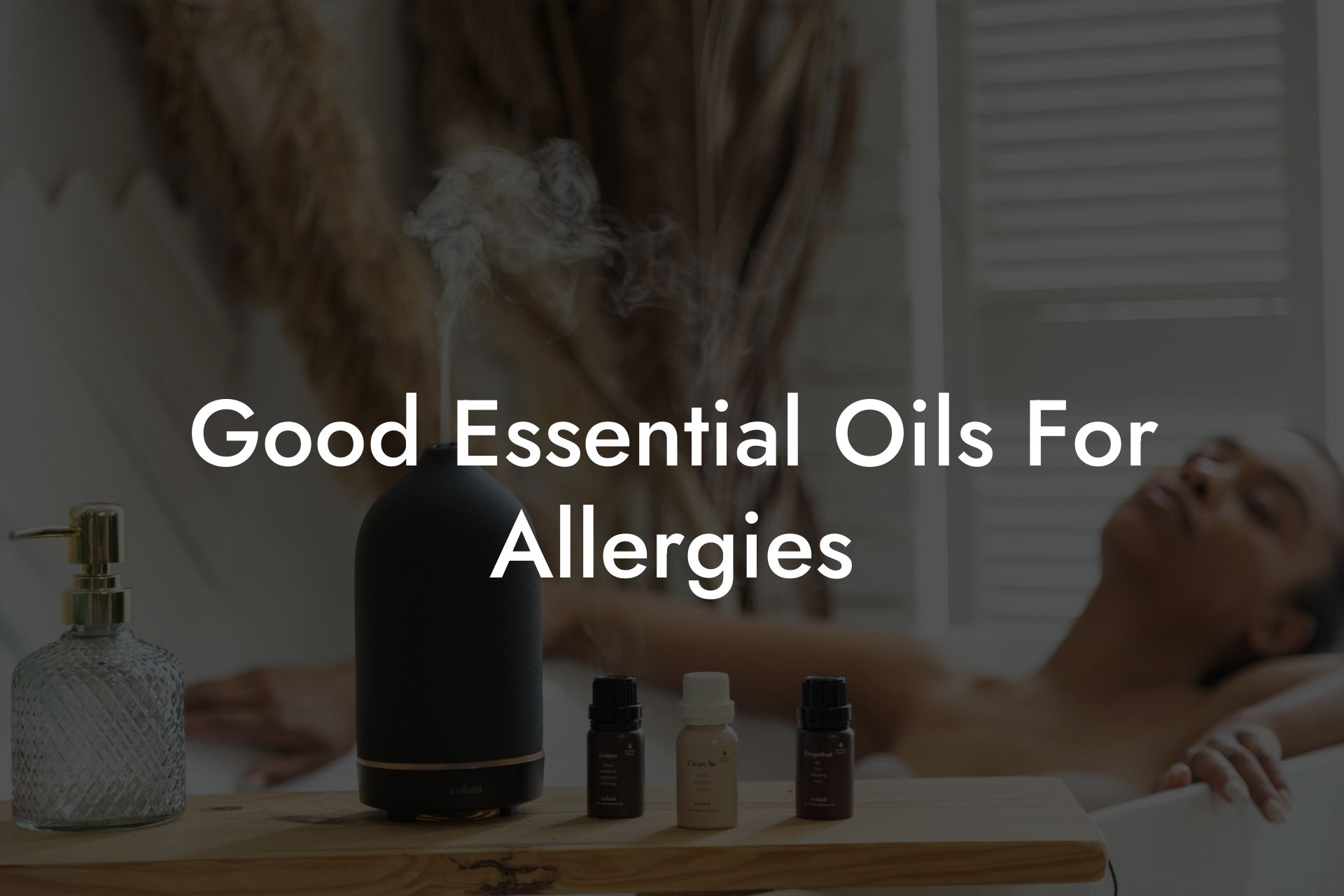Allergies can often put a damper on our daily lives, causing itching, sneezing, and discomfort. But what if there was a natural way to ease these symptoms and help you enjoy life without the constant annoyance of allergies? Enter essential oils. In this blog post, we explore the best essential oils for allergies and how they can bring relief to your life.
Table of Contents
What are Essential Oils?
Essential oils are concentrated plant extracts that capture the plant’s scent, flavor, or “essence.” They are widely known for their aromatic and therapeutic properties, with many people using them as a natural alternative to pharmaceuticals.
Best Essential Oils for Allergies
When looking for essential oils to help with allergy symptoms, consider these popular and effective options:
Peppermint Oil
- Peppermint oil is known for its anti-inflammatory and analgesic properties.
- It can help to open up airways and relieve sinus pressure, making it particularly helpful for those with respiratory allergies.
Lavender Oil
- Lavender oil is a versatile essential oil with anti-inflammatory, antihistamine, and soothing properties.
- It may help to reduce swelling, itchiness, and redness associated with allergic reactions on the skin.
Tea Tree Oil
- Tea tree oil possesses antibacterial, antiseptic, and anti-inflammatory properties.
- Applying diluted tea tree oil to the skin may help with hives, rashes, and other skin irritations related to allergies.
Eucalyptus Oil
- Eucalyptus oil is commonly used to open up airways and relieve sinus pressure.
- It has anti-inflammatory and analgesic properties and may help to soothe the discomfort of respiratory allergies.
Chamomile Oil
- Chamomile oil has calming and anti-inflammatory properties, making it a great choice for soothing skin irritations and reducing redness and itchiness from allergies.
Lemon Oil
- Lemon oil acts as a natural antihistamine and can help neutralize allergens in the air.
- It also has a refreshing scent that can help improve mood and increase energy levels.
How to Use Essential Oils for Allergies
There are several ways to incorporate essential oils into your daily routine to help combat allergies:
- Diffuse the oil in an essential oil diffuser or add a few drops to your pillow or a tissue to help you breathe better at night.
- Apply diluted oils topically to specific areas, such as the skin or temples, to help with itchiness, redness, or sinus pressure. Always be sure to dilute the essential oil with a carrier oil before applying to the skin.
- Create a steam inhalation by adding a few drops of essential oil to a bowl of hot water. Breathe in the steam to help ease sinus pressure and clear airways.
- Take a bath with added essential oils for a relaxing and therapeutic experience – just be sure to mix the oils with a carrier oil or a dispersing agent before adding them to the water.
Good Essential Oils For Allergies Example:
Cathy suffers from seasonal allergies, and her symptoms often include sinus pressure, a constant runny nose, and itchy, watery eyes. She decides to try using essential oils for relief. Cathy invests in a high-quality essential oil diffuser and purchases a blend of eucalyptus, peppermint, and lemon essential oils, known for their allergy-relieving properties. At night, she diffuses the oil blend in her bedroom, which helps her breathe easier and sleep more soundly. The refreshing scent of the lemon oil also helps to improve her mood. Over time, Cathy finds that her allergy symptoms have significantly reduced, allowing her to feel healthier and happier.
Essential oils can offer a natural and effective way to alleviate the symptoms of allergies. Consider integrating the oils we discussed in this article into your daily routine to see which ones work best for your specific symptoms. If you found this blog post helpful, don’t forget to share it with friends and family who might also benefit from using essential oils for allergies. Explore other essential oil guides on the Oshu Oils blog and discover our range of artisanal essential earth oil products to enhance your overall wellbeing.





















